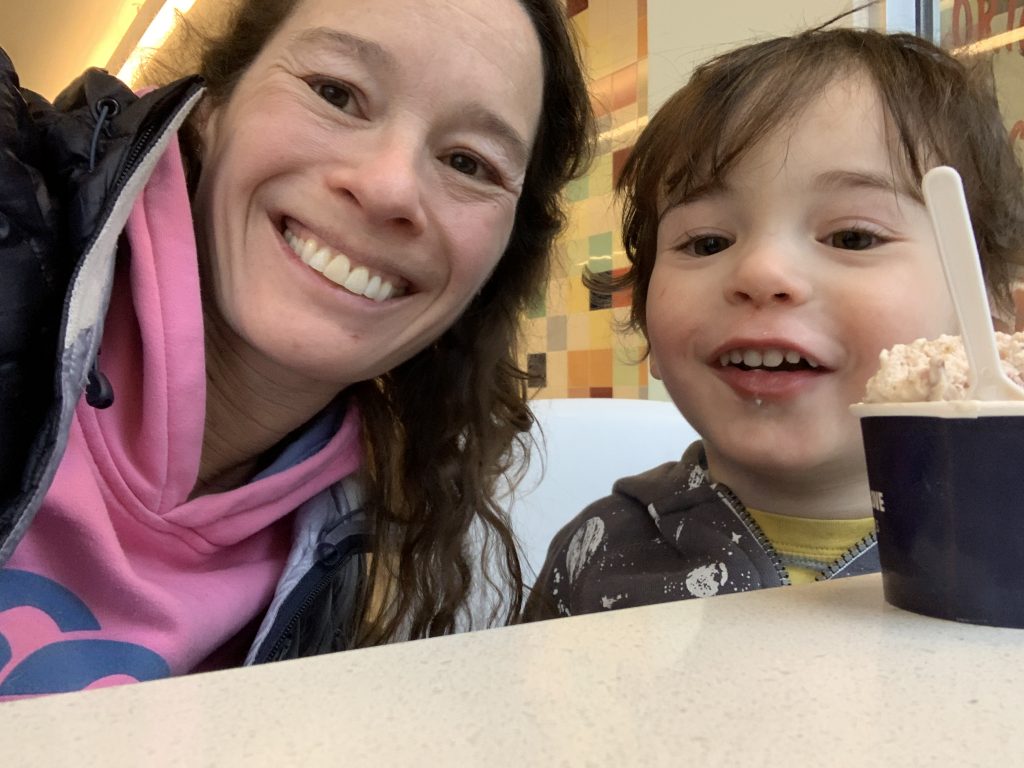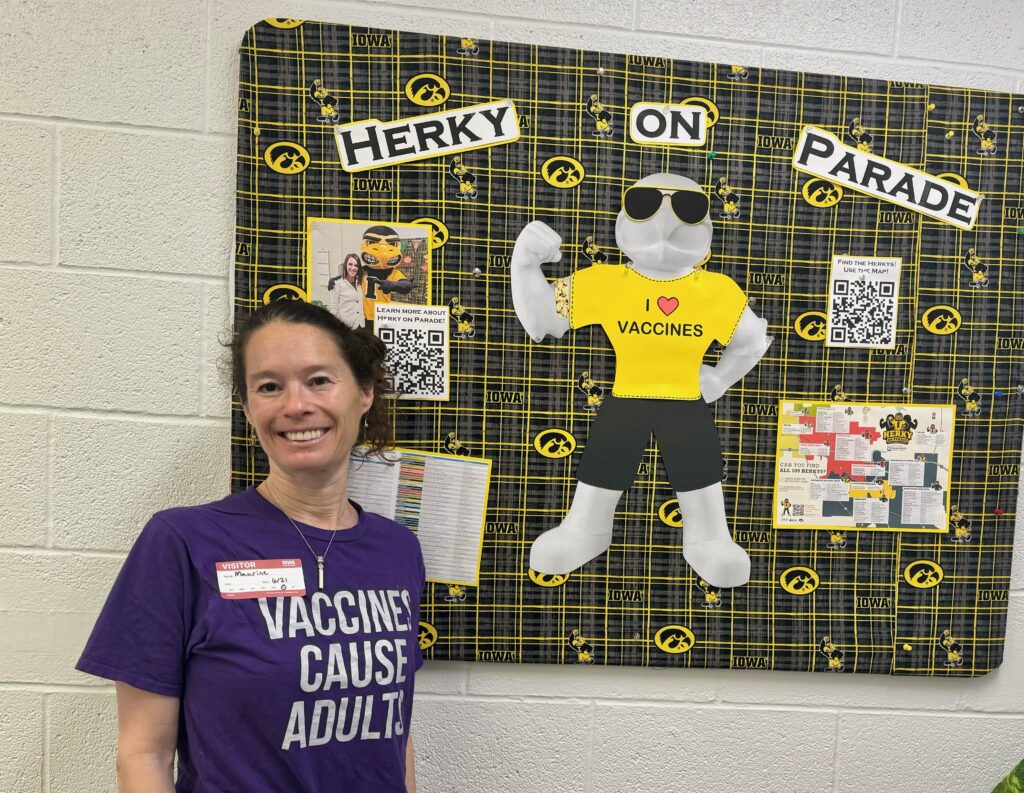“Words Matter, but Actions Matter More” – A Parent Advocate Explains Why She’s A Clinical Trial Participant
Dr. Maurine Neiman is a professor of Biology and Gender, Women’s, and Sexuality Studies at the University of Iowa. She also serves the University of Iowa as a Provost Faculty Fellow for Diversity, Equity, and Inclusion. She uses genomics and natural population experiments to study the evolution of sexual reproduction, invasive species, and host-parasite interactions.
In February 2020, Maurine tragically lost her healthy, two-year-old son, JJ, to influenza. Since that time, she has become an avid advocate in the immunization space, helping to educate others about the disease burden of flu and the importance of annual vaccination. Maurine is particularly interested in how genetic factors may predispose some otherwise healthy children to severe flu-related outcomes.
Read more about JJ’s story here.
Words matter, but actions matter more.
I am an academic scientist, and I have been a professor in Biology here at the University of Iowa since 2008. I have always been a science advocate and a strong supporter of vaccines, but these issues took on new significance after my son JJ died. I knew that influenza could be very dangerous, and especially for young children like JJ. I also knew that by vaccinating him, we were doing the best we could do to keep him safe.

Maurine and son JJ enjoying an ice cream. Maurine advocates for flu vaccination in JJ’s memory.
Many parents choose not to vaccinate their children against the flu, often because of misperceptions regarding vaccine safety. These unvaccinated children are at heightened risk of catching influenza and transmitting it to others. While we will never know exactly how JJ got the flu, it was likely transmitted from an unvaccinated child in his daycare. While most children do not die of the flu, some do; and like JJ, many of these deaths are in previously healthy children.
Unfortunately, while our current flu vaccines are the most potent weapon we have against influenza, the high genetic diversity and rapid rate of evolution of this virus means that even in the best of years, many vaccinated people will still get sick – though at much lower rates than the unvaccinated. So, as the mother of a vaccinated little boy who nevertheless died of influenza in 2020, I am rolling up my sleeve again and again for blood draws and injection of an experimental mRNA influenza vaccine as part of a Phase I clinical trial at the University of Iowa.

Maurine with Herky the Hawk at the University of Iowa for the clinical trial for a new and potentially more effective influenza vaccine.
Taking part in a clinical trial for a new and potentially more effective influenza vaccine is an especially direct way to make a positive difference for community health. I can appreciate that some people might be nervous about taking part in a vaccine trial, especially in an era of rampant misinformation about vaccine safety. As a participant in this trial, I am impressed again and again at the multiple safety measures that are taken to ensure that I am healthy and that any side effects that I might experience are mild. I have been inspired by the nurses and physicians who care for me at the weekly appointments demanded by a clinical trial. They convey such passion and dedication to making the world a healthier place as they check my vital signs and question me about side effects and symptoms.
Now, several weeks and one experimental vaccine jab into the trial, I can report nothing worse than one day of a mildly sore injection site, exactly what I’ve experienced with established injectable vaccines like those for tetanus and whooping cough. I am very grateful to have such ready access to clinical trial participation at the large teaching and research hospital at the University of Iowa, and I am excited to see the results of the study when they are released in the near future.
This is the first time that the revolutionary mRNA technique, now familiar from the COVID-19 vaccines, will be used for the influenza vaccine. I am very hopeful that we will see major benefits in protection against the flu. While nothing will bring JJ back, I am proud to be taking part so actively in the fight against flu in his memory, and I am optimistic that we can work together to make the world a safer and healthier place for everyone.
Read more about JJ’s story here.
Additional Learning: